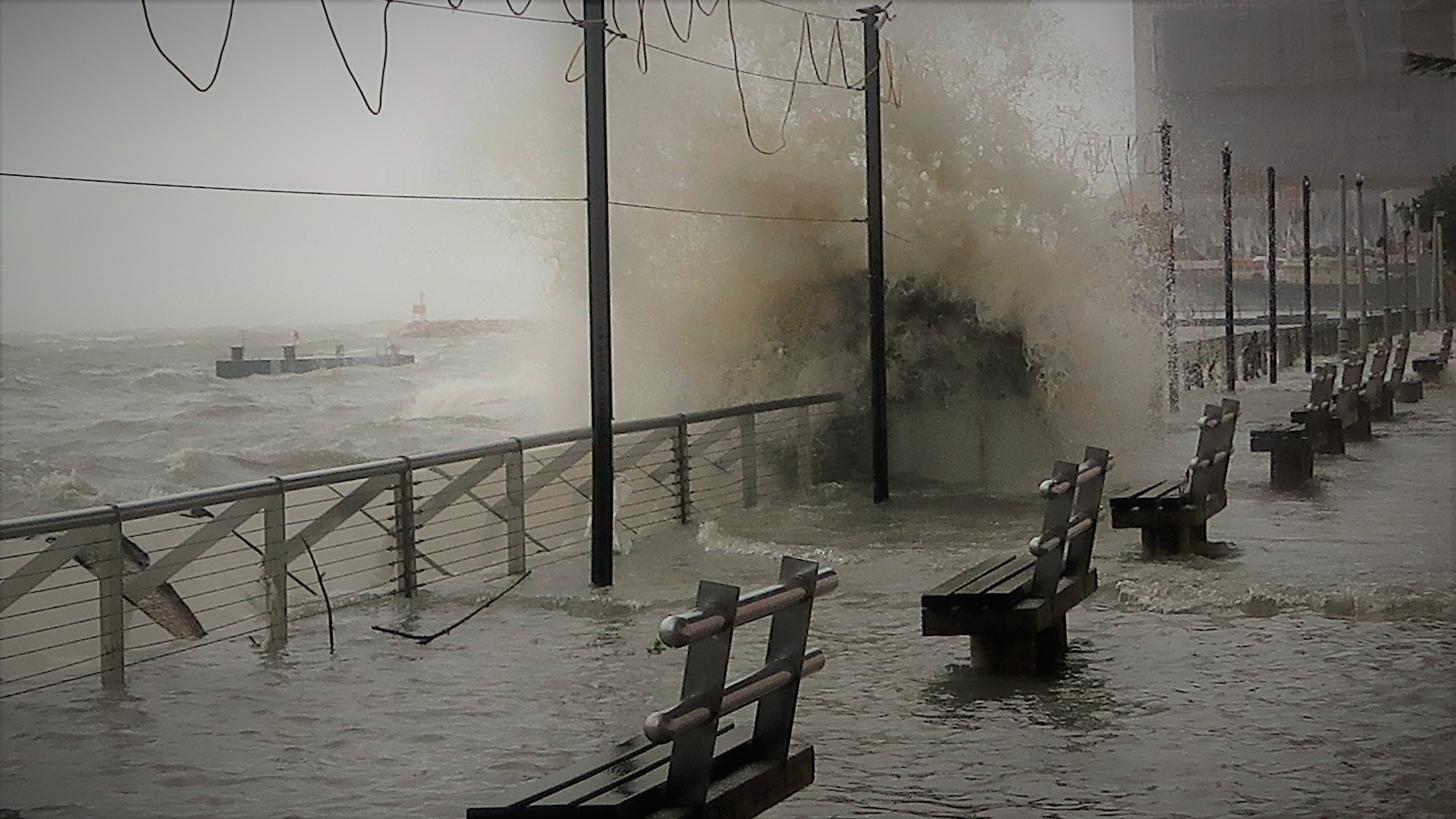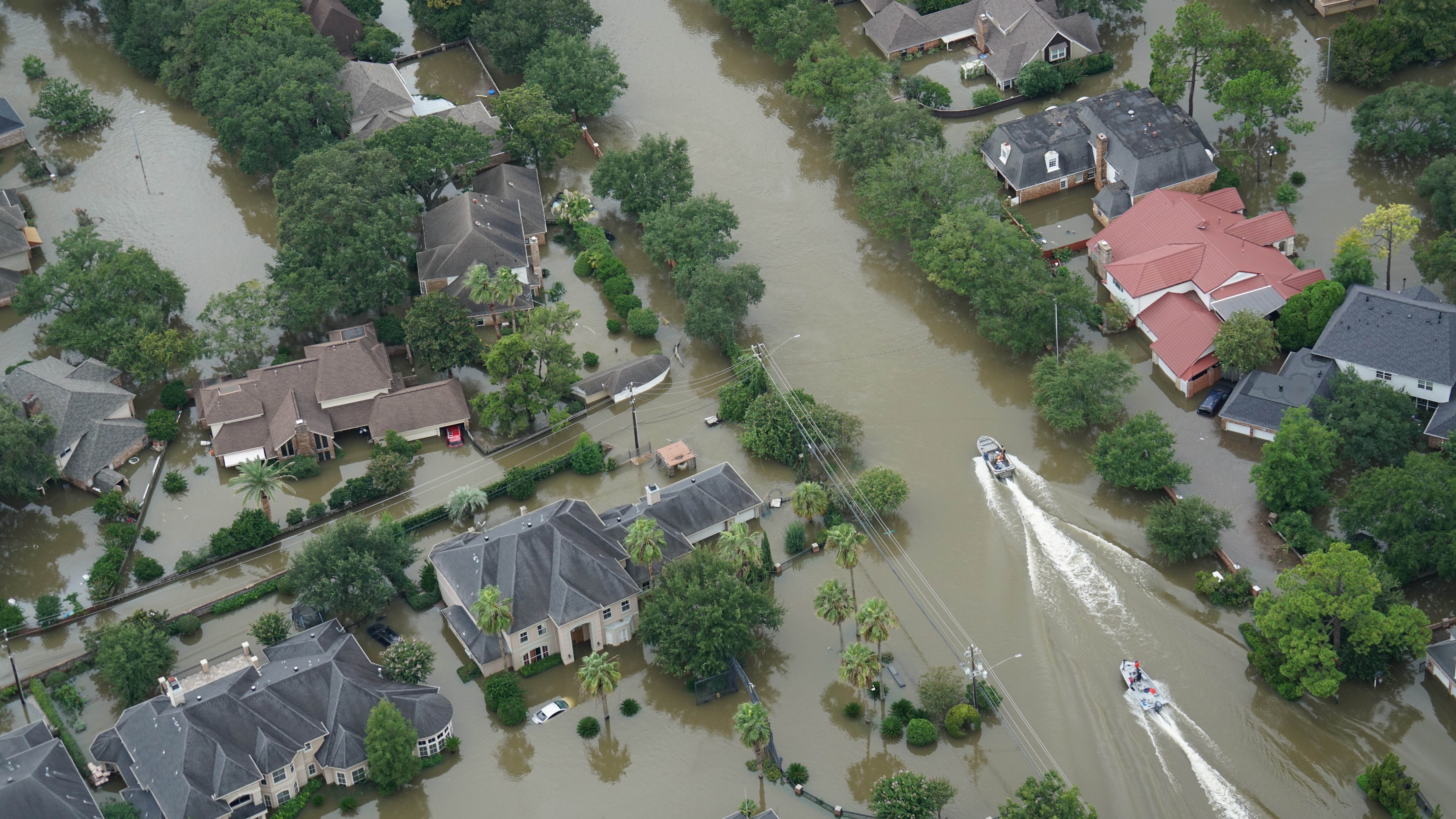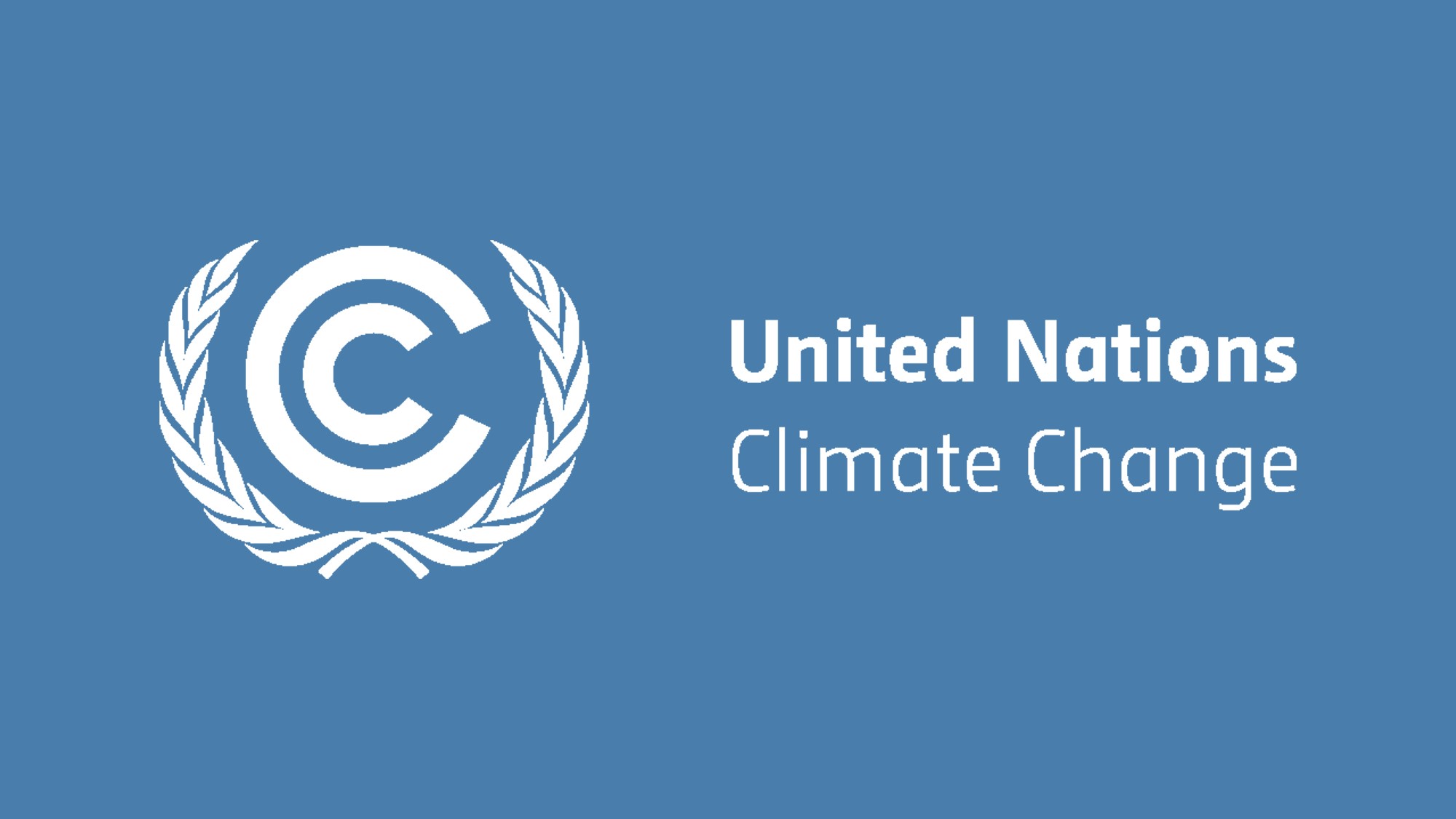THE CHANGING CLIMATE
The adverse impact of climate change-associated extreme weather events is becoming more significant globally, particularly the flood impact on coastal and low-lying areas such as the Pearl River Delta (PRD).
Worldwide, flooding is a major natural disaster affecting many communities throughout history. Globally, flooding killed about 100,000 persons and affected over several million people each year in the last decade of the twentieth century. In terms of economic losses, floods are the number one natural disaster, accounting for over one-third of the total estimated cost of all the natural disasters combined. In coastal areas, floods can be more harmful because the average population densities in coastal areas are around three times higher than the global average. In addition, coastal areas are highly vulnerable to sea level rise (SLR) caused by climate change. Furthermore, climate change causes a predictable increase in atmospheric cyclonic events (e.g., typhoons), increasing the probability of storm surges and coastal flooding.
2017 and 2018 marked two special years for extreme climate events – with unprecedented monsoon rains and floods, cyclones and hurricanes hitting many parts of the world, causing many fatalities, injuries and destruction of property. In 2017, Hong Kong and South China experienced severe typhoons, three of which hit in the space of a week – with one causing serious disruptions to Macao.
![]()
Related RESEARCH & Activities

Climate Adaptation Policies
The Climate Adaptation and Resilience (CARe2018) Hong Kong Conference held on 27-29 Oct 2018 brought together a wide range of experts and stakeholders from across the globe, across industry and business sectors, as well as from local and regional authorities to learn and examine what it would take to make cities and regions much more climate resilient. The conference showcased policies and practices that promote infrastructure investments that would bring about greater resilience to strengthen cities and regions; as well as good practices for public sector officers and communities to learn and reorganize to face climate change challenges.

Human Damage Assessment Framework
Damage assessments of regional natural disasters can aid policymakers and urban planners in formulating long-term strategies for disaster response and help local communities to understand and take necessary steps to alleviate the hazards. While regional extreme weather damage projections are generally difficult, IENV recently proposed a new framework to assess future climate change related regional/local natural hazard risk based on global historical data. Such framework is useful to evaluate future risks of SLR and storm surge in Hong Kong and the PRD region on flood-associated human,

International Climate Framework
The Conference of the Parties (COP) of the U.N. Framework Convention on Climate Change (UNFCCC) - the supreme decision-making body of the Convention - reached the landmark Paris Agreement on greenhouse gas emission mitigation, adaptation and finance in December 2015 - for the first time bringing all nations into a common cause to undertake ambitious efforts. HKUST IENV has been following closely the global climate policy trend as well as the latest climate science findings - particularly from The Intergovernmental Panel on Climate Change (IPCC), and facilitating informed discussions on relating such a high-level framework to Hong Kong's key decision-making process.
![]()
Major Events
10-12 Dec 2022 - Climate Adaptation & Resilience (CARe2022) Hong Kong Conference
10 May 2022 - TCFD based reporting of capacity to transition to net-zero carbon emissions
17 Dec 2021 - Fireside Chat with Dr. MA Jun: Sustainable Finance Taxonomies and Green Finance
13 Aug 2021 - Accelerating Low-Carbon Innovations Towards Carbon Peak and Neutrality
17 Jun 2021 - Pre-COP26: Race-to-Zero: Hong Kong's Climate Actions Towards a Net Zero Future
17 Mar 2021 - HKUST x FRANCE Sustainability Day
28 Jan 2021 - Mobilizing Capital for the Brown to Green Transition: Panel of Catalysers
12 Dec 2020 - The Fifth Anniversary of Paris Agreement Conference
09 Nov 2020 - Is Hong Kong Ready to Ride on China's Carbon Neutral Pledge?
17 Jan 2020 - Post-COP25 Hong Kong Forum
18 Oct 2019 - Business and the Climate Change Challenge
21 Jan 2019 - Post-COP24 Hong Kong Forum – Implications for Hong Kong’s Long-Term Decarbonization Strategy
09 Nov 2018 - Unlocking the Inclusive Growth Story of the 21st Century: Accelerating Climate Action in Urgent Time
27-29 Oct 2018 - Climate Adaptation & Resilience (CARe2018) Hong Kong Conference
13 June 2018 - Financing Green Infrastructure in the Greater Bay Area
14 May 2018 - The Future of the Paris Agreement
17 Apr 2018 - Catching the Wave: Hong Kong as a Regional Green Finance Hub?
06 Dec 2017 - Post-COP23 Hong Kong Forum
13 Dec 2016 - Paris and Marrakesh: Where is the action on climate change going?
29 Oct 2016 - Climathon Conference: Extreme Heat, Extreme Density - Problems and Solutions